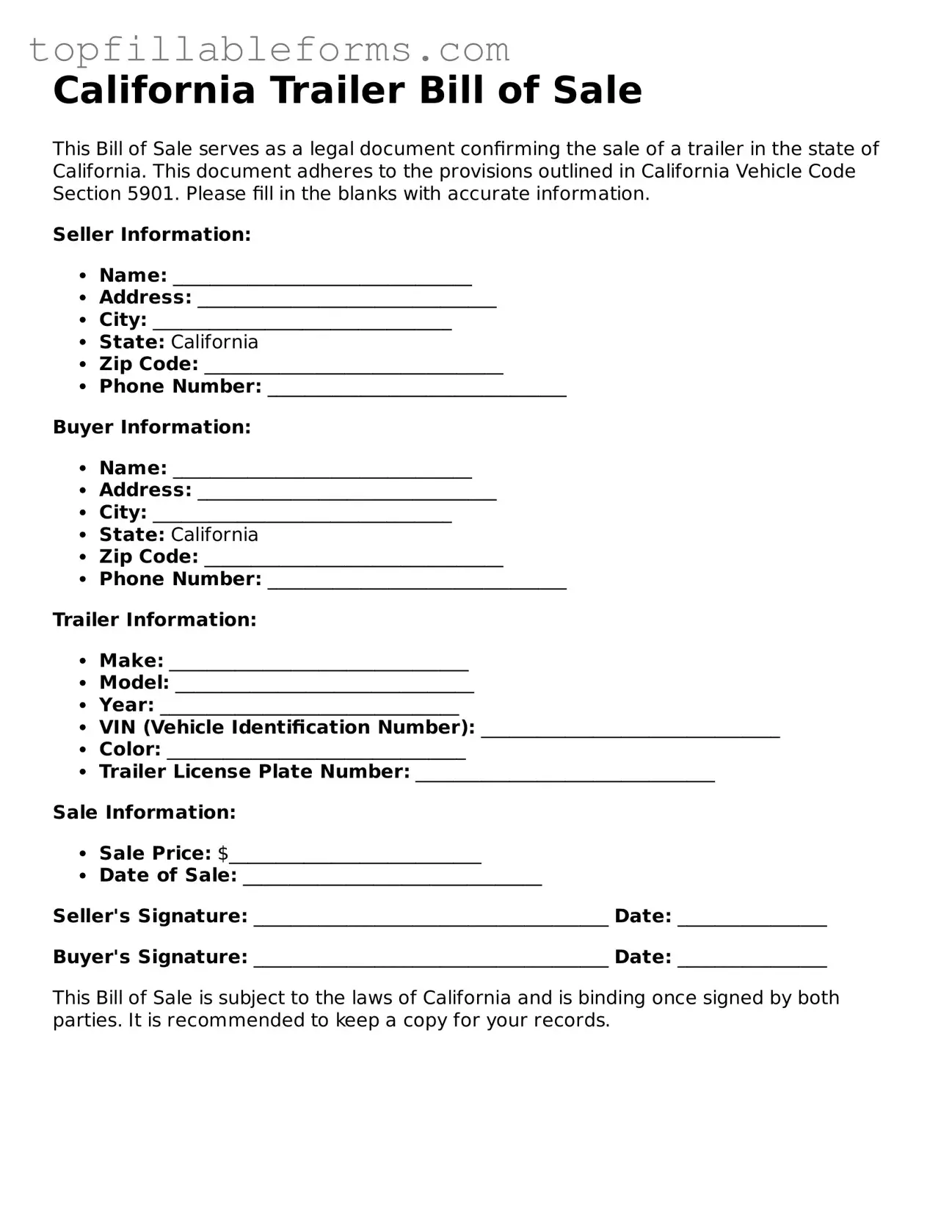Attorney-Verified Trailer Bill of Sale Template for California
The California Trailer Bill of Sale form is a legal document used to record the sale of a trailer in the state of California. This form provides essential details about the transaction, including the identities of the buyer and seller, the trailer's description, and the sale price. Understanding this form is crucial for ensuring a smooth transfer of ownership and compliance with state regulations.
Open Trailer Bill of Sale Editor Here

Attorney-Verified Trailer Bill of Sale Template for California
Open Trailer Bill of Sale Editor Here
Finish the form now and be done
Finish your Trailer Bill of Sale online by editing, saving, and downloading fast.
Open Trailer Bill of Sale Editor Here
or
▼ PDF File
